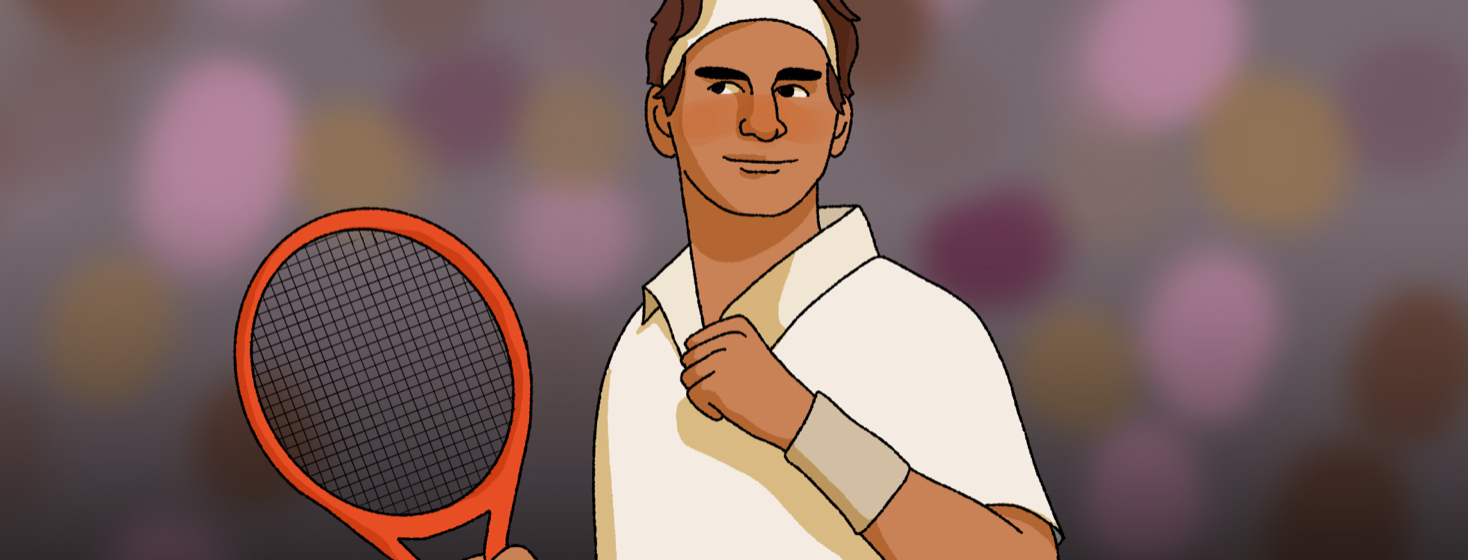How Roger Federer Helped me Get Through Chemo
When I told my kids how sad I was about Roger Federer’s retirement this September, at age 41, my son pointed out that the tennis star hadn’t been actively competing for more than a year. I said that was true, but I knew he was still there, about to flow onto the court with his signature grace. My son asked if I thought Roger was the greatest of all time. I said that by the numbers he wasn’t: he retired with 20 grand slam titles. Raphael Nadal and Novak Djokovic are still competing; they have won 22 and 21 respectively and are likely to accrue more.
Grace in the face of obstacles
But numbers don’t take into account the grace, the shots made on the fly without seeming to try, the calm and collectedness in the face of obstacles that would trip up mere mortals.
It might seem overboard to call watching him a “religious experience,” but I could relate when the novelist David Foster Wallace wrote an essay, “Roger Federer as Religious Experience,” way back in 2006 when the tennis player, at 25, was already known for what Wallace called “Federer moments.”1
Wallace explained, “These are times, as you watch the young Swiss play, when the jaw drops and eyes protrude and sounds are made that bring spouses in from other rooms to see if you’re O.K.” And he said, “The Moments are more intense if you’ve played enough tennis to understand the impossibility of what you just saw him do.”
That would be me, a tennis player for all of my adult life.
I am often off-balance
In continuing to describe what made Federer special, he wrote, “He is never hurried or off-balance. The approaching ball hangs, for him, a split-second longer than it ought to. His movements are lithe rather than athletic.”
That would NOT be me, for I am the person who is often off balance, enough so that I have fallen more than once. (I even needed to go to the ER after falling on my inserted Hickman catheter and separating my shoulder in between chemotherapy sessions.) My own limitations make me appreciate Roger even more. But it’s not just how he plays.
In an essay called “What we Will Most About Roger Federer,” written shortly after the retirement announcement, New York Times contributor Michael Steinberger said the connection, which I share, is about more than admiring the beauty of his game and graciousness off the court. 2
It is “the emotional bond that millions of people, even many who were otherwise indifferent to tennis, have had with Federer,” he wrote. “He exuded kindness, an all-too-rare quality in an athlete of his stature and an attribute that stood out at a time when cruelty seemed ascendant.” In keeping with this theme, I marveled at how, at one French Open, he gave his remarks in English, French, and Swiss French to include as many fans as possible.
Helping me through treatments for my leukemia
My connection with Roger, as we call him, as though he’s our best friend, encompasses all of that and more. He helped me get through chemotherapy in the period leading up to my first stem cell transplant in 2003.
It was late August or early September. I was heading back to the hospital for my second round of chemotherapy, called consolidation. The US Open (tennis, not golf) would be on from Aug. 25th to Sept. 2. I was dreading chemo after the mouth sores, high fevers, and diarrhea endured in the induction phase.
Watching him calmed me
“You can watch Roger Federer who does not sweat,” my sister said. It came out almost as one word: Roger-Federer-who-does-not-sweat. That calmed me down. It gave me something to look forward to. He lost in the fourth round, but he got me through the worst of it. There were of course other fabulous players in the tournament –– American Andy Roddick won –– but my sister rightly picked out Roger, knowing the effect that even just her words would have on me.
Seinfeld tapes made me laugh during this period, but there was nothing like Roger Federer for giving me the “Federer Moments” that took me out of the hospital room.
Do you have something that calmed you down like he did for me during your treatment?

Join the conversation